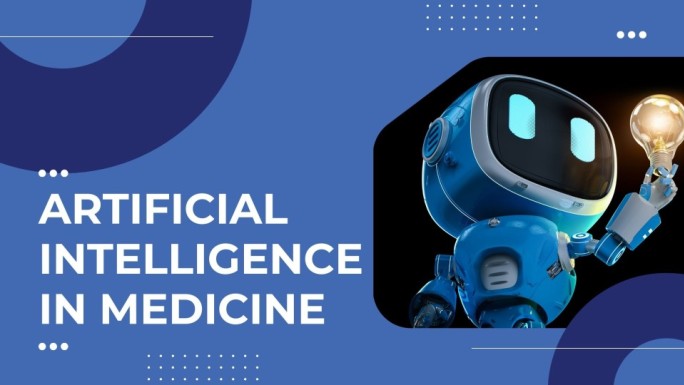Challenges of AI Integration in Healthcare
Artificial intelligence (AI) has the potential to revolutionize healthcare, promising earlier diagnoses, more effective treatments, and even preventative measures. However, integrating AI into complex healthcare systems presents a multitude of challenges. This requires a critical look at the hurdles that need to be overcome to unlock the true potential of AI in improving patient care and overall healthcare efficiency.
Let’s determine the challenges and how to solve them in the article.
1. Data Security and Privacy Concerns
Data security and privacy concerns stand as a huge challenge in the integration of AI into healthcare. Healthcare organizations handle vast amounts of sensitive patient data, making them a prime target for cyberattacks. The consequences of a data breach can be severe, potentially leading to identity theft, financial fraud, and compromising patient care.

To overcome data security and privacy concerns, healthcare organizations must implement some methods such as robust encryption techniques, access controls, regular audits, and employee training.
It's also vital to stay up-to-date with the latest regulatory requirements, such as the Health Insurance Portability and Accountability Act (HIPAA), to ensure compliance. By prioritizing patient privacy and investing in secure systems, healthcare organizations can mitigate the risks associated with AI integration.
2. Lack of Sufficient Data
Another key challenge in AI integration within healthcare is the lack of sufficient data. AI systems heavily rely on data to make accurate predictions and recommendations. In many cases, there may be insufficient or poor-quality data available to train AI algorithms effectively. This limitation can hinder the performance and accuracy of AI systems.
Thus, healthcare organizations must address this challenge by implementing strategies to collect, store, and maintain high-quality data. Additionally, collaboration between healthcare institutions to share data responsibly can help overcome the obstacle of inadequate data.
Moreover, investing in data collection processes, such as wearables and remote monitoring devices, can also help ensure a steady stream of quality data for training AI algorithms.
3. Interoperability Issues
Interoperability issues present significant obstacles in the seamless integration of AI into healthcare systems as integrating AI often requires sharing data across various platforms and systems.
Therefore, ensuring the secure transfer of this data while maintaining its integrity and confidentiality poses a significant challenge.
To overcome interoperability issues, healthcare organizations must invest in systems that can communicate with each other effectively. Adopting standardized formats and protocols can facilitate data exchange and interoperability between different systems and technologies. Moreover, collaboration between technology vendors and healthcare organizations is essential to developing interoperable solutions that seamlessly integrate AI into existing healthcare infrastructure.
4. Regulatory Compliance
Regulatory compliance is a critical challenge in the integration of AI into healthcare. Healthcare organizations must comply with strict regulations, such as the Health Insurance Portability and Accountability Act (HIPAA), to protect patient privacy. Integrating AI while maintaining compliance with these regulations can be complex.
Organizations need to stay up-to-date with the latest regulatory requirements and implement measures to ensure compliance. This includes adopting robust data security measures, ensuring transparency in AI-driven decision-making processes, and accountability for the outcomes of AI-driven decisions. Furthermore, regular audits and training programs can help ensure that healthcare staff are aware of and comply with regulatory requirements.
5. Ethical and Bias Concerns
Ethical and bias concerns are also significant challenges that must be addressed in the integration of AI into healthcare. AI algorithms have the potential to perpetuate and even exacerbate existing biases in healthcare. Additionally, ethical concerns arise regarding the use of AI in decision-making processes, especially in critical areas such as diagnostics and treatment planning.
To address ethical and bias concerns, healthcare organizations must ensure that AI systems are developed and deployed in an ethical and responsible manner. Regular auditing of algorithms for bias, transparency in decision-making processes, and accountability for the outcomes of AI-driven decisions are essential. Additionally, educating healthcare professionals about the benefits and limitations of AI, as well as fostering a culture of diversity and inclusion, can help mitigate bias concerns.
6. Resistance to Adoption
Resistance to adoption is a key challenge in the integration of AI into healthcare. Healthcare professionals may be hesitant to embrace AI-driven technologies because of concerns about their impact on job security, changes in workflow, or simply a lack of familiarity with the technology.

Overcoming resistance to adoption involves effective change management strategies, education, and training. Healthcare organizations must involve frontline staff in the implementation process, address their concerns, and demonstrate the benefits of AI integration to encourage adoption.
Fostering a culture that embraces innovation and continuous improvement can help overcome resistance to adoption. Providing ongoing support and training can also help healthcare professionals feel more comfortable and confident in using AI-driven technologies.
7. Financial Barriers
Last but not least, the financial challenges associated with AI integration in healthcare cannot be understated. High initial investment costs are a primary hurdle, encompassing the procurement of AI systems, data management tools, computing infrastructure, and staff training.
Data management costs also play a significant role, requiring substantial resources for collecting, cleaning, storing, and protecting sensitive patient data, along with the development of algorithms to ensure their effectiveness and lack of bias. Additionally, integrating AI into existing systems, training healthcare professionals, and ensuring regulatory compliance add to the financial strain.
Overcoming these financial challenges requires careful planning, collaboration, and strategic investment. Government support, public-private partnerships, and innovative financing models can help make AI integration in healthcare more financially feasible, ensuring that the benefits of AI are accessible across the entire healthcare spectrum.
Conclusion
In the journey to integrate Artificial Intelligence (AI) into healthcare, overcoming significant hurdles is crucial for realizing its potential in revolutionizing patient care and operational efficiency. Data security and privacy concerns, lack of sufficient data, interoperability issues, regulatory compliance, ethical and bias concerns, and resistance to adoption stand as the key challenges.
To overcome these obstacles, healthcare organizations must implement robust strategies as we have mentioned above. By addressing these challenges, healthcare organizations can successfully integrate AI into their systems, improving patient care and operational efficiency. With careful planning, collaboration, and a commitment to patient privacy and security, the future of AI integration in healthcare is bright, promising a new era of innovation and improved patient outcomes.





